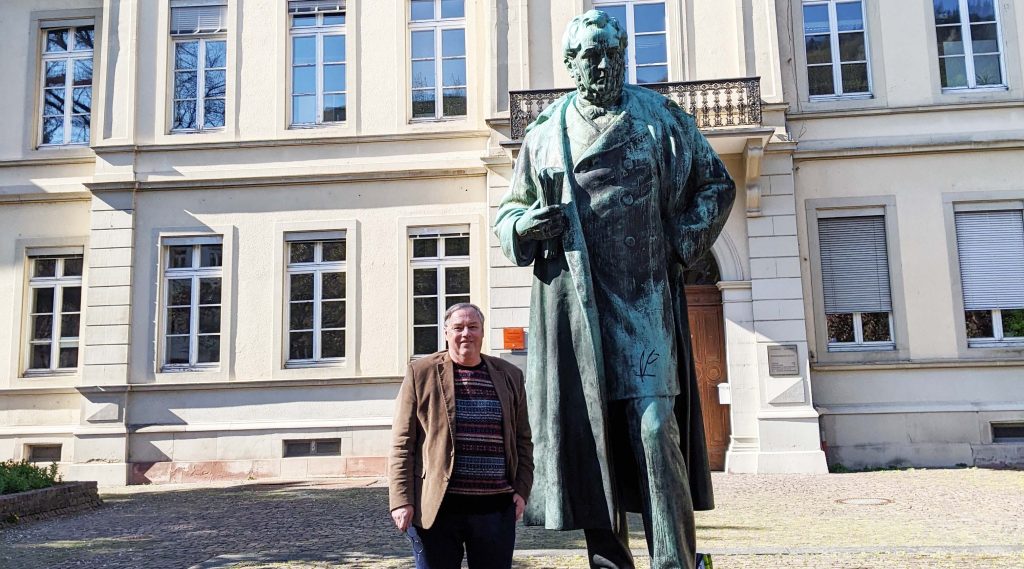David Wirth, a BC Law professor and dean’s distinguished scholar, is spending the Spring 2023 semester on sabbatical in Heidelberg, Germany. During his time there, he has advanced his scholarship at the Max Planck Institute for Comparative Public Law and International Law, and at the Law Faculty at the University of Heidelberg.
Can you describe the scope of your work? I am working on a project that goes back to my time at the US State Department. It involves “mixed agreements” between the EU and a third country, to which both the EU, as an international organization, and its Member States are parties. It is very intellectually challenging, requiring the identification of powers, or competences, exclusive to the EU, to the Member States, and those that might overlap. So far as I know, I am one of the few academic legal researchers in North America working on this issue.
I am simultaneously working on major projects on plastics pollution, hazardous chemicals, food safety, climate, and children’s health. Most of those are part of my work with BC’s new undergraduate major in Global Public Health and the Common Good directed by Phil Landrigan, MD, where I teach a course together with the Law School’s Professor Mary Ann Chirba. The major is administered by the Connell School of Nursing in partnership with the Schiller Institute for Integrated Science and Society.
How will this EU research enhance your overall scholarship? The “value added” from my work will be the effect on third states. European legal scholars tend to focus on the internal legal effects, not the external foreign relations consequences. Third states such as the US and Canada can find these complex negotiations extremely confusing. All of a sudden, they are negotiating not just with the EU, but also with each of the 27 Member States. [BC Law Professor] Vlad Perju helped me put the proposal together. This complicated and challenging project will likely continue even after I leave Germany in June.
What are your desired outcomes? The first is a particularly challenging project, with implications for European Constitutional and foreign relations law both. It has implications for agreements on trade, foreign investment, climate, and sustainability—all of which I work on routinely. The second is a continuation of my professional work on bridging the gap between science and law. I recently served on the Minderoo-Monaco Commission on plastics and human health, directed by Dr. Landrigan, for which I did much of the legal work. The report of that project is specifically tied to UN-sponsored negotiations on a new global convention on plastics.
Will you have any opportunities to present your work internationally? I will give a presentation on the negotiations and the Minderoo-Monaco Commission report at the Max Planck Institute’s so-called “Monday rounds”—which have taken place weekly for nearly a century—on May 22. It is very unusual for a Visiting Scholar such as myself, who is not a permanent researcher at the institute, to be invited to do so. I will also attend the second round of negotiations on the global plastics convention, to be held in Paris at the end of May, as an accredited observer.


